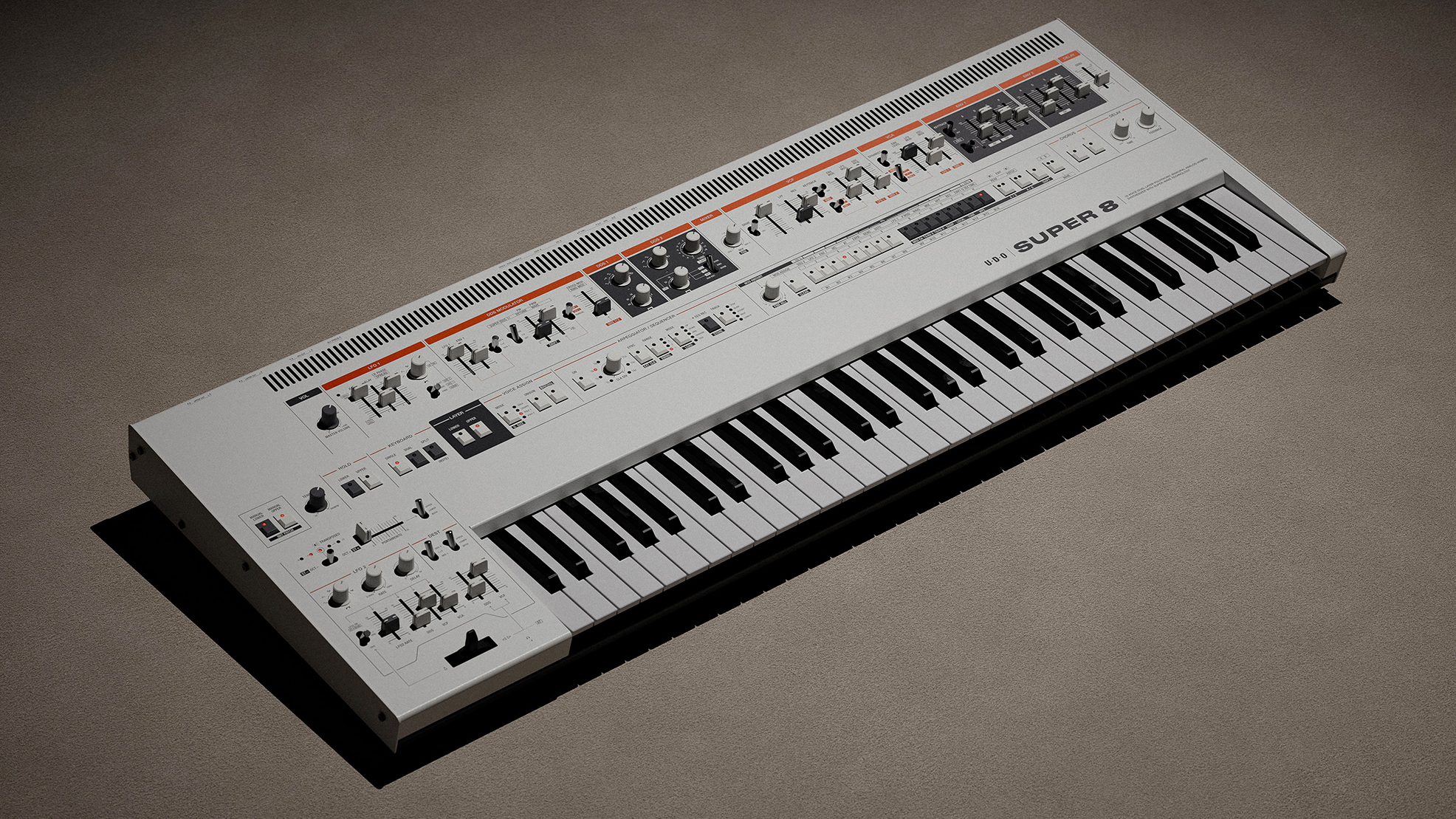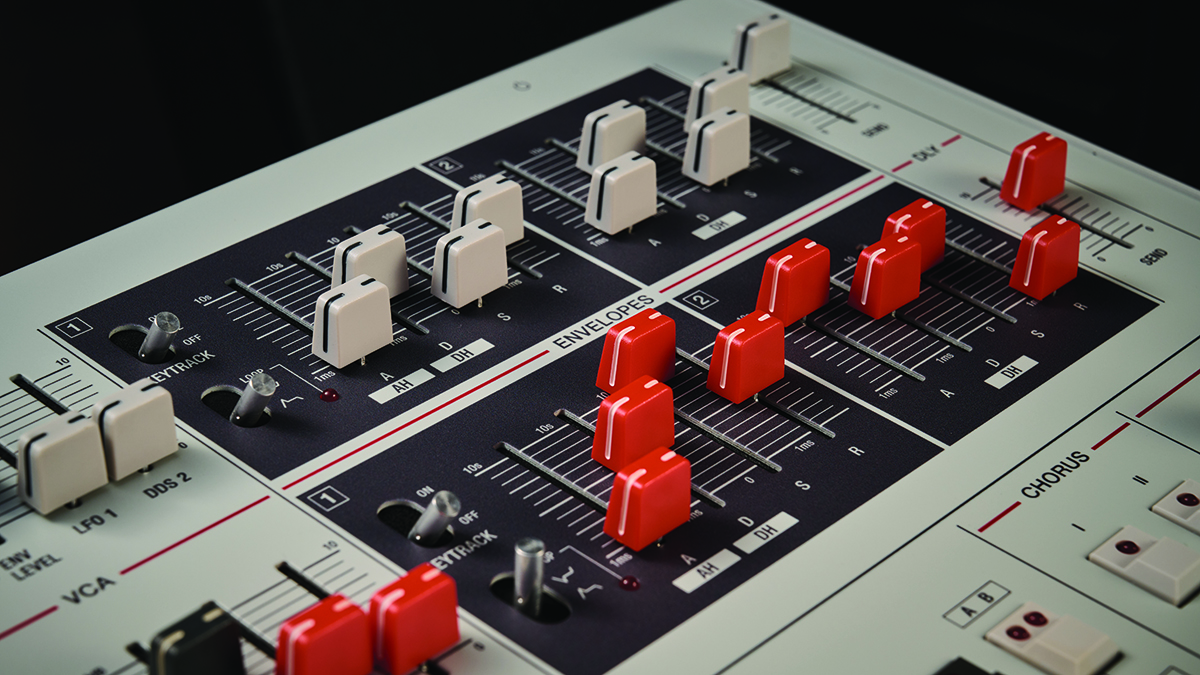
Back in May, British synth manufacturer UDO announced the Super 8, a polyphonic analogue synth with a binaural signal path that sits in their product line-up between their debut instrument the Super 6 and its successor the Super Gemini.
This week, the Super 8 is finally available to pre-order and priced at $3,299/£3,111/3,599€ over at Thomann. (If you're in the UK, the synth is available now from Andertons for £2995.) Recap the Super 8's specs below and watch a video from UDO on the synth's self-oscillating filter or read our reviews of the Super Gemini and Super 6.
Original article
[16/05/2024] UK-based synth maker UDO has unveiled a new instrument at this year's Superbooth gear expo.
Sitting in the middle of their product line-up between their debut synth, the 12-voice Super 6 and the beastly 20-voice, multitimbral Super Gemini, the Super 8 packs many of the features of its bigger brother into a slightly smaller and lighter form factor with a reduced price tag.
Super 8 offers 16-voice polyphony when not used in its binaural mode, which reduces the number of voices available to 8. Aside from the reduced polyphony, the most notable difference between the Super 8 and Super Gemini is the omission of the Gemini's ribbon controller and the extra set of controls that could be used to control the bitimbral synth's second sound layer. (Super 16 is still bitimbral, but you'll have to switch between layers on one set of controls.) The synth also comes in at 13.4kg, about a kilo lighter than the Super Gemini.

“One of the great 21st-century polysynths”: UDO Audio Super Gemini review
From here on out, the Super 8's architecture is similar to UDO's other synths: it's a hybrid instrument with high-resolution, FPGA-based digital oscillators and two analogue filters (a 4-pole 24dB/oct low-pass and a 1-pole 6dB/oct high pass) and it offers the same Binaural Mode, which makes use of the synth's true stereo signal path to pair up its 16 voices into 8 'super voices', each of which gives both the left and right channels an independent synth voice.
Waveforms available include sine, saw, square, triangle, and noise, along with 32 additional waveforms that can be updated by the user. You'll also find various bells and whistles that include oscillator sync, ring mod, PWM and wave morphing, along with a Super Mode that'll give you six extra unison voices for each oscillator.
Though it lacks the ribbon controller found on the Super Gemini, Super 16 still has polyphonic aftertouch on its 61-note semi-weighted keyboard, something the Super 6 does not. Elsewhere, you'll find the same modulation matrix, multi-mode arpeggiator and 64-step sequencer as the Gemini, along with an effect section that includes stereo chorus and a delay with a freeze function that can be used as a rudimentary looper.
All in all, the Super 8 looks like an excellent choice for those drawn to UDO's unique approach to synth design but torn between the two options in their line-up. If you're after more than 12-voice polyphony but aren't particularly fussed about the independent bitimbral controls or the ribbon controller, this could be the synth for you.
Super 8 is priced at $3749/£2995/€3669 and will be shipping in July 2024.







